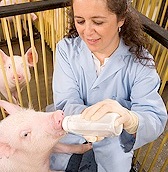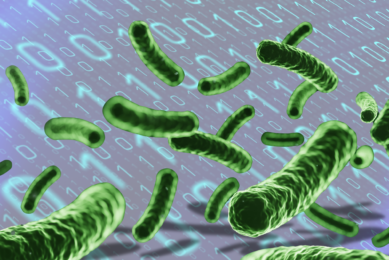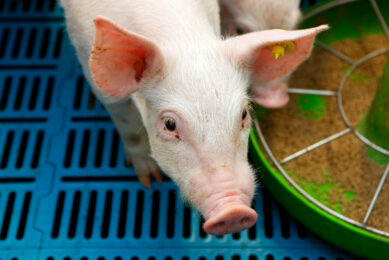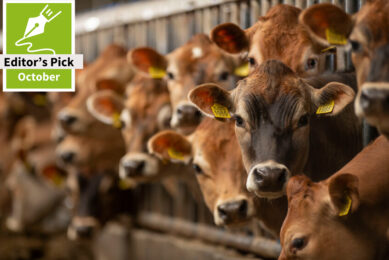Patented prebiotic helps good bacteria

Beneficial bacteria that promote intestinal health in humans and livestock could get a boost of their own, thanks to a new method for turning certain sugars from corn and other crops into complex carbohydrates called oligosaccharides.
According to Agricultural Research Service (ARS) chemist
Greg Cote, the oligosaccharides have
commercial potential as “prebiotics.” These are food or feed additives that
nourish populations of Lactobacillus, Bifidobacterium and other
“probiotic” bacteria that live inside their hosts’ colons.
Besides
unlocking minerals, vitamins and other nutrients from the oligosaccharides,
probiotic bacteria can also make the colon less hospitable to pathogens, such as
Salmonella and Escherichia coli, that can cause illness in
humans.
When fed to chicks or piglets, for example, the prebiotics could
bolster the growth and activity of probiotic bacteria so they would outcompete
Salmonella for space and nutrients—a potential boon later on, when the animals
mature and are slaughtered for their meat.
Cote, who’s in the ARS
Bioproducts and Biocatalysis Research Unit at Peoria, Illinois, co-developed the
oligosaccharides with Scott Holt, an associate professor with Western Illinois
University‘s Department of Biological Sciences. They envision
formulating the oligosaccharides as a prebiotic product that could be
administered orally.
Their production method uses a microbial enzyme
called alternansucrase to catalyze a series of
biochemical reactions that convert sugars like sucrose, glucose or maltitol into different kinds of
oligosaccharides.
Depending on which were used, the resulting
oligosaccharides bolstered the laboratory growth of Bifidobacterium,
Lactobacillus, Bacteroides and some enterococci bacteria, but not pathogens such
as Salmonella, E. coli or Clostridium perfringens.











